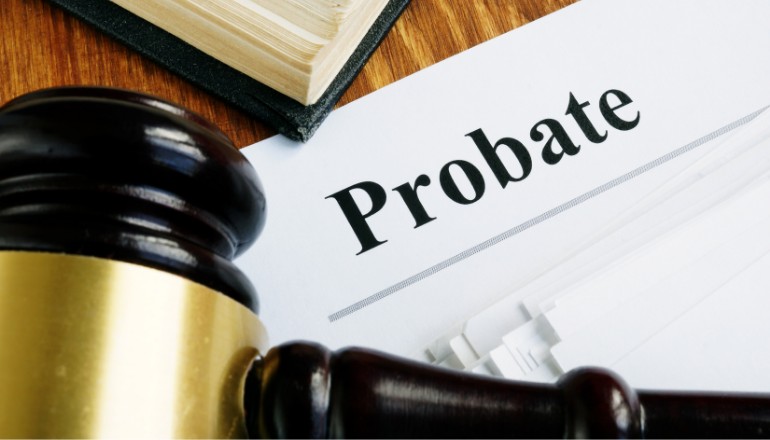
When someone close to you passes away, there’s a lot to take in emotionally. At the same time, there’s also a long list of things that have to be done, including handling their property and finances.
In Florida, this legal process is called probate. It’s something many people don’t fully understand until they’re in the middle of it and happen to need legal guidance for navigating the probate process.
Full Definition of Probate
Probate in Florida is the legal process of transferring a person’s assets after they die. These assets can be anything the person owned, including bank accounts, houses, cars, tools, jewelry, or even guns. In legal terms, the person who passed away is called the decedent, and everything they owned when they died is called their estate.
If the person had a valid will, the court would follow it to decide who gets what. If they didn’t have a will, Florida law decides who receives the assets, usually starting with their closest family members.
But even if there is a will, probate is still required. That’s because the court has to make sure the will is valid before anything can be done. A probate judge has to officially accept the will and open a case before assets can legally change hands.
Now, whether the decedent had a will or not, the court’s main goal is to make sure the right people, either beneficiaries listed in the will or the legal heirs under Florida law, get the right property.
Types of Probate in Florida
There are two main types of probate in Florida: formal administration and summary administration.
Formal administration
This is the standard process. It’s required for larger or more complex estates or if a personal representative (that’s Florida’s term for an executor) needs to be appointed to handle things.
Formal administration starts with filing the will and a petition in court. Once the court accepts the petition, the personal representative gets legal authority to handle the estate.
They’ll notify any beneficiaries or heirs, create an inventory of all the decedent’s property, figure out what debts and bills need to be paid, and then (only after everything is settled) ask the court for permission to distribute the remaining assets. Once that’s done, the estate can be officially closed.
This process usually takes six to nine months but can take longer if the estate is complicated or if there are disputes.
Summary administration
Summary administration, on the other hand, is a shorter and simpler version of probate. It’s only available if the total value of the estate is $75,000 or less or if the decedent has been dead for more than two years.
Summary administration skips a lot of the steps of formal administration and usually takes about one to two months. The assets can be distributed faster, and there’s usually no need for a personal representative to be appointed. But even with this simpler process, creditors must be notified, and any debts must still be paid before anything is distributed.
Florida also has a procedure called disposition without administration. This is for very small estates if the only money left is enough to pay for the funeral or medical expenses.
If that’s the case, the person who paid those expenses can file a short petition to get reimbursed without going through full probate.
What Kinds of Property Go Through Probate?
Not every asset a person owns has to go through probate. Some things pass automatically to another person because of how they’re set up.
For example, if the decedent had a life insurance policy with a named beneficiary, that money goes directly to the beneficiary; probate is needed. The same goes for bank accounts that say “payable on death” or retirement accounts with named beneficiaries.
There’s also something called rights of survivorship. If the decedent owned a home with someone else, usually a spouse, and the deed says they owned it together with rights of survivorship (or if they owned it as tenants by the entirety, which is common for married couples), the property automatically goes to the surviving co-owner. Again, no probate is needed.
But if there’s no beneficiary listed and no survivorship rights, then that asset goes into the probate process. This usually includes things like bank accounts without a named beneficiary, vehicles, personal belongings, and real estate that the decedent owned alone.
To find out whether a piece of real estate needs to go through probate, a lawyer will usually review the property deed.
Where and How Probate Happens in Florida
Probate cases in Florida are handled by the circuit courts. If the decedent lived in Florida, the case has to be filed in the county where they lived. If they didn’t live in Florida but owned property there, the case could be filed in the county where that property is located.
The court’s authority is limited to assets in Florida. It can’t control property in other states or countries. Also, the court can only handle property that actually belonged to the decedent.
If there’s a question about ownership, maybe someone else is claiming the property, the court might freeze the asset until everything is sorted out.







